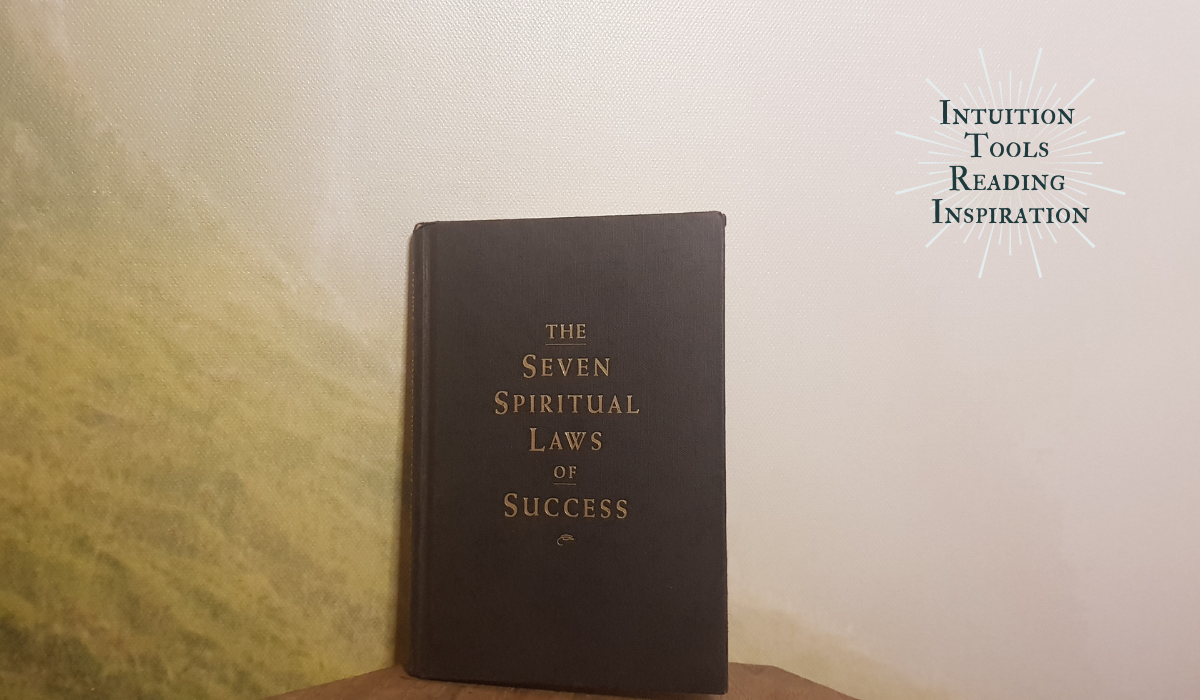The Seven Spiritual Laws of Success - essential spirituality framework in 111 pages
Intuition Tools Reading Inspiration

Book review of Deepak Chopra’s The Seven Spiritual Laws of Success
It surprises me that this little gem of a book never gets much attention when we hear and read about mr. Chopra’s work. Maybe it’s because after you’ve read this book, you really don’t need any other book anymore, or any other content, spirituality-wise. Even if this book is smaller than your average women’s magazine, the amount of wisdom within those 111 pages is really sensational.
It has been close to two decades after I first read this book, and I’ve been meaning to re-read it every since. I was wondering how I would find it now, with so much more spiritual knowledge in my toolkit after those two decades – but there is no doubt in my mind: this book is still one of the best and most practical spiritual works I’ve ever read.
At first the title might put you off a bit, like it did me too. Talking about ‘success’ makes the book sound like any old American business or self-help book – and we’ve read enough of those already, right? But no, no, don’t be tempted to put the book back on the selves, oh no! Take it with you! Keep it close and don’t let anyone take if from you.
This edition of Intuition Tools Reading Inspiration gives you a peek into the only spiritual book you’ll ever need

The book is comprised of the seven laws mentioned in the title. Let’s look at them here.
1. The law of pure potentiality
This part is about our spiritual essence, about pure consciousness. Mr. Chopra explains that this is the same as our essential nature and our own Self. How we can experience the Self is by having our internal reference point at our spirit and not at the objects of our experiences. The need for approval, the need to control things are based on fear, and that is not the power of Self and pure potentiality. Then we learn how to access this pure potentiality: silence, meditation and spending time in nature.
2. The law of giving
Here, we learn how energy goes and flows. We can’t get what we want if we don’t give it away first. It’s like the flow of blood, if it stops, it clots and stagnates. The same goes for the flow of energy. That’s why we must give in order to receive.
A great practice mr. Chopra suggests is that to intend that every time you meet someone, you will give them something. It doesn’t have to cost you anything: the most precious gifts can be caring, attention, affection, appreciation and love.
3. The law of Karma
Karma is cause and effect at the same time. And these happen all because of choices we’ve made, even if we were unaware of it. We might think that we have reactions to people and situations, but in fact these are still decisions we make ourselves. How can we cooperate with this system of the universe?
When we make a choice, we ask ourselves two things: 1) “What are the consequences of this choice?” and 2) “Will this choice now bring happiness to me and those around me?”.
Mr. Chopra explains why it is always so very vital to listen to our bodies and to trust our intuition. Our bodies have a way of knowing the correct answers to these questions. Mr. Chopra claims there are two kinds of sensations: one of comfort (yes) and one of discomfort (no). Feel into your heart, your gut or your second chakra to find out the answer.
4. The law of least effort
This is the principle of no resistance, of letting go, I would say. To really learn this lesson, we have to look at nature: grass doesn’t try to grow, it just grows.
There are three components to this law:
1) Acceptance: accept people and situations as they are, not as you wish they would be.
2) Responsibility: don’t blame anyone or anything for your current situation, including yourself.
3) Defenselessness: relinquish the need to convince or persuade others of your point of view. When you stop fighting and resisting, you will fully experience the present.

5. The law of intention and desire
“Whatever you put your attention on will grow stronger. […] The quality of intention on the object of attention will orchestrate an infinity of space-time events to bring about the intended outcome.”
You can put the cosmic computer with its infinite organizing power to work for you, by introducing an intention. But it’s important to release your attachment after you’ve done so. This means to plant your intentions in fertile ground and trusting them to bloom when the season is right.
6. The law of detachment
This law continues where the last one closed off. It means you have to give up your attachment to a specific result, but not your intention as such! If you can truly detach, you practice unquestioning belief in the power of your true Self, while attachment is based on fear and insecurity (and scarcity I would add).
7. The law of dharma
This is the sanskrit word for purpose in life. Mr. Chopra explains: “You have a unique talent and a unique way of expressing it. There is something that you can do better than anyone else in the world”. Wow, that’s a beautiful realisation, isn’t it?
Our only role then, is to express our talent while serving others with it. If you do that, Chopra says, abundance can’t do anything else than flow to us!
This book is so completely and utterly filled to the brim with spiritual gems, I wish I could just copy the whole thing in here for you. But I can’t… Will you promise me to read it as soon as you have the chance?
Wait – before you go, this might interest you:
– Do you sometimes distrust your intuition – a lot – and wonder if it is even real?
– Do you feel that while you know your intuition is there giving you advice, you usually don’t follow up on it – because logically speaking something else makes a lot more sense?
– Do you sometimes feel self-conscious if you would listen to your intuition – and you hear your own mind telling you it’s all nonesense anyway?
There is a simple process you can follow
to learn to trust your intuition
and let go of doubt and fear
Learn HOW in the
5-day mini-course
